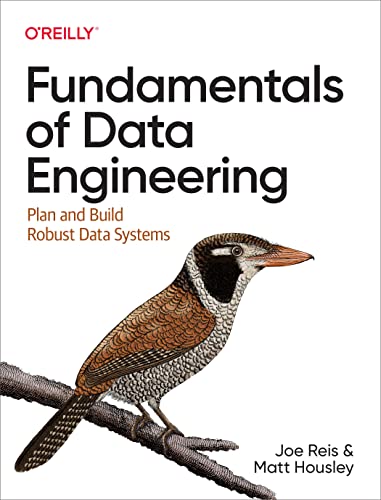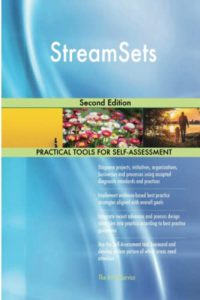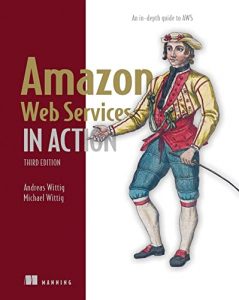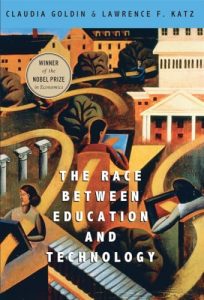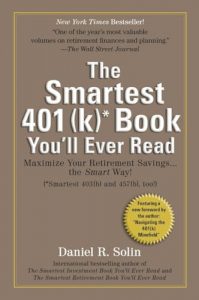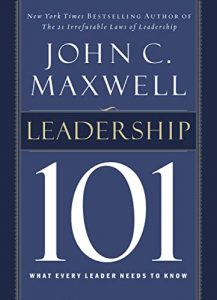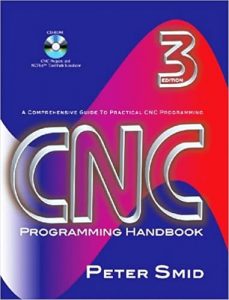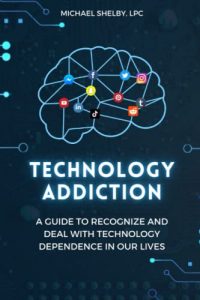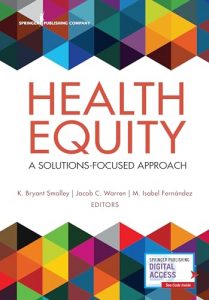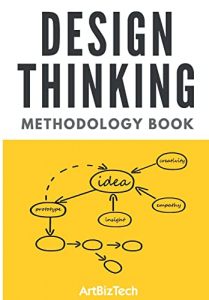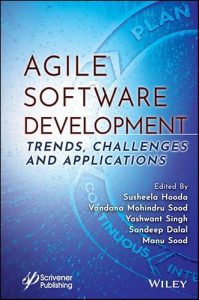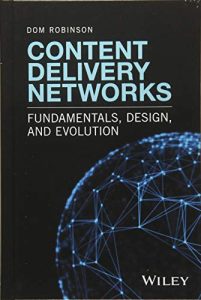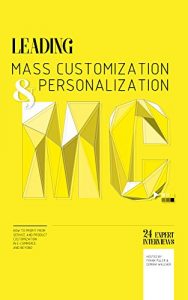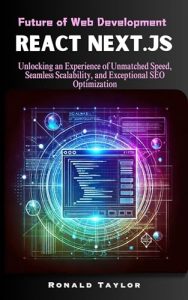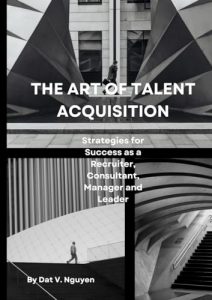Top Books Every Data Engineer and Machine Learning Enthusiast Must Read
In the rapidly evolving field of data engineering and machine learning, continuous learning is crucial. Here are some must-read books that will help you refine your skills, understand the latest trends, and enhance your practical know-how in these domains.
1. Fundamentals of Data Engineering: Plan and Build Robust Data Systems
This insightful book by Joe Reis and Matt Housley is perfect for anyone looking to build a solid foundation in data engineering. It teaches you how to design and implement data systems that are robust and scalable, which is essential in today’s data-driven world. The practical approaches discussed will empower you to tackle real-world challenges effectively, making it a requisite read for aspiring data engineers.
Whether you’re a beginner or looking to enhance your expertise, this book provides invaluable insights into the planning and building of efficient data infrastructures.
2. Beginning MLOps with MLFlow: Deploy Models in AWS SageMaker, Google Cloud, and Microsoft Azure
If you’re eager to dive into the world of MLOps, look no further than this guide by Sridhar Alla and Suman Kalyan Adari. This book offers a comprehensive step-by-step approach to deploying machine learning models in popular cloud platforms. By the end, you will be well-prepared to implement and manage machine learning models in production, ensuring scalability and reliability. The practical examples and clear explanations make this an essential asset for any data scientist looking to effectively transition into the world of operational machine learning.
3. Managing Machine Learning Projects: From Design to Deployment
Simon Thompson’s book is a practical guide that addresses the complexities involved in managing machine learning projects. The book illustrates essential concepts around planning, executing, and overseeing projects while also providing strategies for dealing with the unique challenges of machine learning. It is crucial for project managers and team leads who wish to bridge the gap between technical implementation and successful deployment outcomes, making this book a treasure trove of strategies and insights.
4. Engineering MLOps: Rapidly Build, Test, and Manage Production-Ready Machine Learning Life Cycles at Scale
Emmanuel Raj offers a groundbreaking guide on how to engineer an MLOps pipeline. This book is indispensable for those looking to streamline the machine learning lifecycle, addressing topics like testing, deployment, and management of production-ready models. It combines theoretical insights with practical applications, making it significant not only for engineers but also for data scientists who want to understand operational aspects in greater detail.
5. Building LLMs for Production: Enhancing LLM Abilities and Reliability with Prompting, Fine-Tuning, and RAG
Co-authored by Louis-François Bouchard and Louie Peters, this book tackles the deployment challenges faced while working with Large Language Models, particularly in production settings. Each chapter elaborates on techniques like prompting, fine-tuning, and retrieval-augmented generation that can increase the efficacy of your models. For researchers and practitioners in the field of natural language processing, this book will become a go-to resource as AI technologies continue to advance.
6. The Handbook of Data Science and AI: Generate Value from Data with Machine Learning and Data Analytics
This comprehensive guide written by a collective of experts is a detailed resource that delves into harnessing data through machine learning and AI. The book is structured to guide readers from foundational concepts to complex applications, making it suitable for both beginners and seasoned professionals. You’ll find a wealth of case studies, methodologies, and practices that will equip you with the skills needed to extract meaningful insights from data.
7. The Machine Learning Solutions Architect Handbook: Create Machine Learning Platforms to Run Solutions in an Enterprise Setting
David Ping’s book is tailored for individuals aspiring to specialize in the architectural design of machine learning solutions. By providing a robust framework for building platforms that cater to enterprise needs, this handbook arms you with the necessary tools and strategies for successful implementation. It emphasizes a clear connection between modeling, software engineering, and infrastructure, proving essential for technical leaders and architects.
8. Applied Machine Learning for Data Science Practitioners
Vidya Subramanian’s text is perfect for data science practitioners who wish to develop practical skills in machine learning. This book covers various algorithms, tools, and practical applications, thus allowing readers to apply theory to real-world problems effectively. It’s a thorough resource that ensures readers not only grasp foundational concepts but also obtain hands-on experience in deploying machine learning models.
9. Managing AI in the Enterprise: Succeeding with AI Projects and MLOps to Build Sustainable AI Organizations
Klaus Haller’s guide is essential for managers looking to lead AI initiatives successfully. The focus is on integrating AI practices within an enterprise to ensure sustainability and impact. With actionable insights on managing projects, overseeing transitions, and maintaining ongoing success, this book is crucial for professionals in leadership roles who aim to harness AI’s potential effectively within their organizations.
10. Mastering Data Engineering and MLOps: Building Scalable Pipelines for AI-Driven Decision Making
Jyotipriya Das offers a fresh perspective on mastering the intricacies of data engineering alongside MLOps. This book focuses on creating scalable pipelines that support AI-driven decisions, vital in today’s data-centric environments. By integrating theory, practical examples, and case studies, it offers an in-depth understanding of building robust systems necessary for effective decision-making in enterprises.

